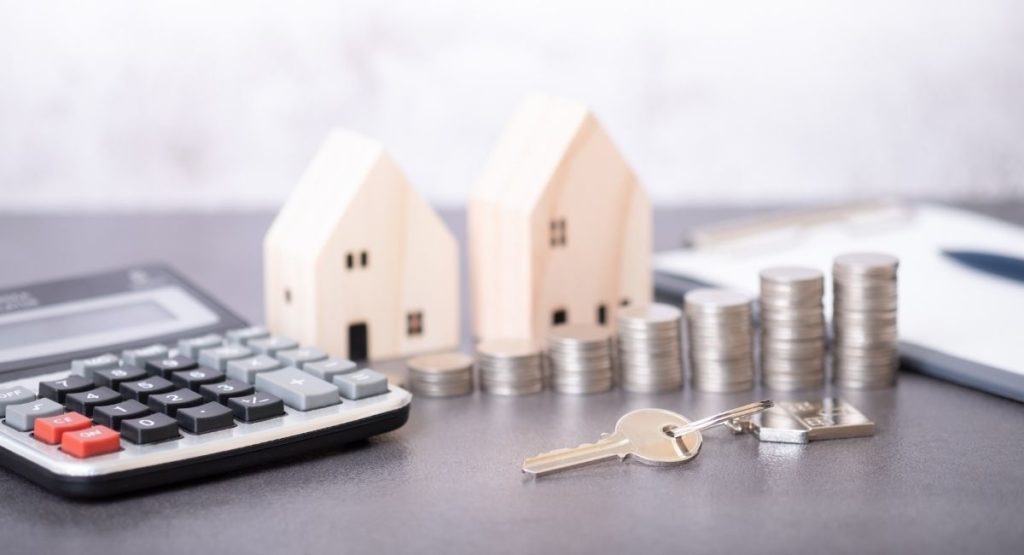Being a first-time homebuyer is an exhilarating and overwhelming experience—especially when you find homes being bought at a median of nearly $300,000 and homes for sale flying off the market in a matter of weeks. While you might be tempted to make an impulsive purchase, know that it will hurt your financial goals.
Like any project, a successful first-time home buying experience is all about getting the details right from the beginning to end. Listed below are 12 tips for first-time homebuyers that will help you tackle the process, save money, and close the deal efficiently. Put them into practice, and you will find your first home to a blessing and not a burden.
Tips for Home Buying Preparation
Start Saving Early
Once you decide to buy a home, the first thing you should do is start saving for it. Here are some of the main costs worth considering when saving for a home.
- Down Payment: Your down payment requirement will vary based on the type of mortgage and the lender you choose. A few conventional loans aimed at first-time buyers with good credit features down payment as little as 3 percent. However, even a small down payment is challenging to save. Use a down payment calculator and start saving right when you start thinking about buying a home.
- Closing Costs: This is the amount you will pay to finalize your mortgage, and this can typically range from 2-5 percent of the loan amount. You can save on some expenses like home inspections by shopping around and asking the seller to pay part of your closing costs.
- Move-in Expenses: Right after the home purchase, you will need some cash for immediate home repairs, furnishings, and upgrades. So, remember to set them aside.

Decide a Budget for Your Home
Based on your savings, income, debt, down payment, credit score, and the area you plan to live in, calculate an amount you can safely spend on a house. Home affordability calculators found online can also help with figuring out a price range.
Check and Strengthen Your Credit
Your credit score will determine your eligibility for a mortgage, and it will also affect the interest rate lenders will offer. Here are a few steps to strengthen your credit score when planning to buy a house.
- Get copies of your credit reports from three credit bureaus—Experian, TransUnion, and Equifax.
- Pay your bills on time and keep credit card balances as low as possible.
- Keep all your credit cards open, as closing a card will lower your score by increasing the portion of available credit you use.
- Track your credit score.
Tips for Mortgage Selection
Explore the Available Options
Once you start searching for mortgages, you will find that there is an overwhelming array of options with varying down payments and eligibility requirements to choose from. Here are a few main categories:
- Conventional Mortgages: Targeted at first-time buyers, these home loans require as little as three percent down payment, but it is not guaranteed by the government.
- FHA Loans: These loans are insured by the Federal Housing Administration, with down payments estimated at 3.5 percent.
- USDA Loans: Designed for rural homebuyers and guaranteed by the U.S. Department of Agriculture, these loans typically require no down payment.
Compare Mortgage Rates and Fees
Ask for loan estimates for the same type of mortgage from different lenders to compare the costs, interest rates, and possible origination fees. Check to see if a lender offers the opportunity to buy discount points—fees the borrower pays upfront to lower the interest rate. If you have money on hand, consider buying points to secure a lower interest rate.
Get a Preapproval Letter
Through a mortgage preapproval, a lender offers to loan you a specific amount under certain conditions. Having a preapproval letter on hand shows home sellers that you are serious about buying a home, which gives you an edge over other home shoppers who haven’t taken this step yet.
Apply for preapproval once you are ready to start home shopping. The lender will pull your credit and review documents to verify your income, assets, and debt. Applying for a preapproval from multiple lenders won’t impact your credit score as long as you do it within a limited time frame, like 30 days.
Tips for Home Shopping
Choose the Right Real Estate Agent
The right real estate agent will surf the market for homes that meet your needs and walk with you through the negotiation and closing process. Consider agent referrals from other home buyers, interview at least a few agents, and ask for references. Ensure the agent you choose is experienced in the market and knows the neighborhood you plan to buy your home in.
Pick the House and Neighborhood Type
Weigh the positives and negatives of the different types of homes based on your lifestyle and budget. A condominium or townhome might be cheaper than a single-family home. However, shared walls with neighbors will mean less privacy.

Consider your long-term needs and whether your new home will be your forever home. Also, check out the potential neighborhood thoroughly—test the commute to work during rush hour, and look at the amenities.
Stick to Your Budget
Often a lender would love to loan you more than what is comfortably affordable, or you might feel the pressure to spend outside your comfort zone to beat another buyer’s offer. To avoid financial stress down the road, stick to the price range based on your budget. When shopping around, look for properties below your price limit to have some wiggle room for bidding.
Tips for Buying a Home
Pay for a Home Inspection
A home inspection refers to the thorough assessment of the structural and mechanical systems. Professional inspectors will look for potential problems so you can make an informed decision about purchasing the property.
Negotiate with the seller
You can save some money on your home purchase by asking the seller to lower the price to cover the cost of repairs you will have to make later or pay for the repairs in advance. Furthermore, you can also ask the seller to pay a part of the closing costs.
Sit with your real estate agent to figure out the local market as it will impact your negotiating power. Often, it is hard to bargain when there are more buyers than homes for sale.
Buy Enough Home Insurance
Your lender will want you to purchase homeowner’s insurance before closing the deal. Home insurance will cover the cost to repair or replace your home and its belongings in case they are damaged by an incident covered in the policy.
Get Started
A real estate agent will help take the weight off your shoulders by helping you find the right home, negotiate a deal, and oversee the process until closing.
Have Questions? Ask Jana!
Your real estate agent is the best source of information about the local community and real estate topics. Give Jana Jeanette a call at 803-524-2473 to learn more about local areas, discuss selling a house, or tour available homes for sale.


 Keller Williams Connected
Keller Williams Connected